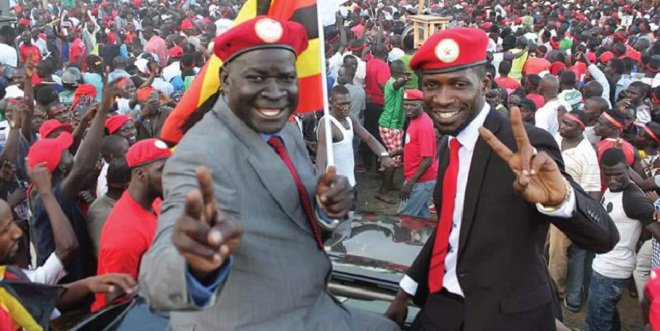
Before Bobi Wine came onto the political seen as a contender, former Prime Minister and 2016 presidential contender, Amama Mbabazi had been the freshest victim.
In the build up to the 2016 elections, President Museveni wrote to Bank of Uganda Governor Tumusiime Mutebile raising concerns about the National Bank of Commerce.
Apparently, President Museveni claimed that he had received information that Mbabazi was laundering money through the bank, which he intended to use as financial war chest in the 2016 elections.
Within no time, NBC was closed and sold to tycoon Sudhir Ruparelia. Around the same time, the government machinery made it impossible for many of Mbabazi’s close associates to carry out business.
Companies linked to him were denied business and other business and close associates were forced to inform him that if he was going ahead with plans to challenge President Museveni, they would not be with him.
While Mbabazi was directly involved in politics, former central bank Governor, Sulaiman Kiggundu was not but suffered the same fate when rumours emerged that he was nursing presidential ambitions and was wielding heavy political influence through his bank—Greenland Bank.
The bank had its own liquidity challenges but there was a feeling that the politics could have quickened its demise. Just as was suspected, Kiggundu would later turn out a major player in the founding of Uganda’s biggest opposition political party, the Forum for Democratic Change (FDC).
The initial meetings around the formation of an outfit to oust President Museveni from office took place at Kiggundu’s house in Kololo. Kiggundu would later become FDC’s first national chairman.
But if Kiggundu never realised his ambitions to contend against Museveni, Kizza Besigye, who would later lead the FDC is easily the best case study of how President Museveni fights opponents.
Since 2000 when Besigye announced he would be challenging President Museveni in the 2001 elections, security operatives have beaten, arrested, jailed him and his supporters countless times.
Away from this, FDC insiders say the state made sure Besigye supporters lost business or found it hard to operate. Some of the key names include that of Musinguzi Garuga, a party stalwart that also funded the party.
Garuga lost business until he pledged to stay away from Besigye. Dan Mugarura another FDC stalwart claims that the state frustrated his businesses. Bobi Wine is the latest victim.
In October last year, police banned cross-country concerts that Bobi Wine had been staging ever since his election in June 2016.
The shows attracted mammoth crowds. And for these crowds he articulated his political message through songs like Freedom, Situka (Rise Up), which he released shortly after the disputed 2016 general elections.
It was not long before police pulled out its favourite charge against those who threaten President Museveni’s hold onto power—inciting the public to violence—which they continue to use to block his concerts.
To save himself, Bobi Wine took the matter to the floor of parliament towards the end of last year. But even when Speaker Rebecca Kadaga tasked Prime Minister Ruhakana Rugunda to explain why security forces were harassing Bobi Wine and blocking his concerts, nothing was forth coming.
 The Independent Uganda: You get the Truth we Pay the Price
The Independent Uganda: You get the Truth we Pay the Price




Tulyambala engule olutalo nga luwedde! We shall walk with swag in a new Uganda when Dictator Museveni has gone to the rubbish dump of history.?